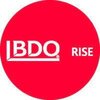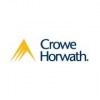
i
NAV
Backoffice
Filter interviews by
NAV Backoffice Interview Questions and Answers
16 Interview questions
A hedge fund is an investment vehicle that pools capital from accredited investors to pursue various strategies for high returns.
Hedge funds often employ leverage to amplify returns, such as borrowing money to invest more than the capital they have.
They can invest in a wide range of assets, including stocks, bonds, commodities, and derivatives.
Hedge funds may use complex strategies like short selling, arbitrage, a...
Management is the process of planning, organizing, leading, and controlling resources to achieve organizational goals.
Planning: Setting objectives and determining a course of action. Example: Developing a marketing strategy for a new product.
Organizing: Arranging resources and tasks to implement the plan. Example: Creating a project team with defined roles.
Leading: Motivating and directing people to work towards t...
NAV, or Net Asset Value, represents the value per share of a mutual fund or an investment fund.
NAV is calculated by subtracting total liabilities from total assets of the fund.
For example, if a fund has $1 million in assets and $100,000 in liabilities, the NAV is $900,000.
If there are 100,000 shares outstanding, the NAV per share would be $9.
NAV is typically calculated at the end of each trading day for mutual fun...
I address employee grievances through active listening, timely resolution, and fostering an open communication culture.
Listen actively: I ensure employees feel heard by giving them my full attention during discussions.
Investigate thoroughly: For example, if an employee reports harassment, I gather all relevant information before taking action.
Maintain confidentiality: I assure employees that their concerns will be...
I am passionate about fostering a positive workplace culture and supporting employee growth through effective HR practices.
I believe HR plays a crucial role in shaping organizational culture, which directly impacts employee satisfaction and productivity.
My experience in team management has shown me the importance of effective communication and conflict resolution in the workplace.
I am motivated by the opportunity ...
Joins are used to combine rows from two or more tables based on a related column, while stored procedures are precompiled SQL statements stored in the database for reuse.
Joins are used to retrieve data from multiple tables based on a related column
Common types of joins include INNER JOIN, LEFT JOIN, RIGHT JOIN, and FULL JOIN
Stored procedures are precompiled SQL statements stored in the database for reuse and effic...
Address work related issues by communicating openly, seeking solutions collaboratively, and prioritizing tasks effectively.
Communicate openly with colleagues and supervisors to address any issues that arise
Seek solutions collaboratively by brainstorming with team members and seeking input from others
Prioritize tasks effectively to ensure that important issues are addressed in a timely manner
COGS stands for Cost of Goods Sold, and the formula to calculate it is Opening Inventory + Purchases - Closing Inventory.
COGS = Opening Inventory + Purchases - Closing Inventory
Opening Inventory: The value of inventory at the beginning of the accounting period
Purchases: The cost of inventory purchased during the accounting period
Closing Inventory: The value of inventory at the end of the accounting period
Example: ...
Budgeting refers to the process of creating a financial plan for a specific period of time.
It involves estimating income and expenses
It helps in managing finances effectively
It can be done for personal or business purposes
Examples include creating a monthly budget for household expenses or an annual budget for a company
Structured finance refers to complex financial instruments created by pooling together various assets and then selling them to investors.
Structured finance involves the creation of securities that are backed by a pool of assets such as mortgages, loans, or bonds.
These securities are then sold to investors who receive payments based on the cash flows generated by the underlying assets.
Structured finance can be used...
NAV Backoffice Interview Experiences
33 interviews found
I applied via Walk-in and was interviewed in Oct 2024. There were 3 interview rounds.
Round 1 was a technical assignment which includes aptitude test, accounting test and excel test
(2 Questions)
- Q1. Basic details like tell me about yourself
- Q2. About your family and future goals.
(4 Questions)
- Q1. About financial statements
- Q2. Financial ratios
- Q3. Mutual fund vs hedge fund
- Ans.
Mutual funds are managed by professionals who invest pooled funds in a diversified portfolio of securities, while hedge funds are more actively managed and use a variety of strategies to achieve high returns.
Mutual funds are regulated by the SEC and have restrictions on trading practices, while hedge funds have more flexibility and are only available to accredited investors.
Mutual funds are typically more suitable for ...
- Q4. Type of bonds and shares. And corporate actions.
- Ans.
Bonds and shares are types of securities issued by companies to raise capital. Corporate actions refer to events that impact shareholders.
Types of bonds include government bonds, corporate bonds, and municipal bonds.
Types of shares include common shares and preferred shares.
Corporate actions include dividends, stock splits, mergers, acquisitions, and rights issues.
Interview Preparation Tips
- Capital Market
- Fund Management
I applied via Referral and was interviewed in Jul 2024. There were 3 interview rounds.
Excle , Accounting ,
(2 Questions)
- Q1. Tell me about your self?
- Ans.
Experienced executive with a strong background in strategic planning and team leadership.
Over 10 years of experience in senior management roles
Proven track record of driving growth and profitability
Skilled in developing and implementing business strategies
Effective communicator and motivator
Led a team that successfully launched a new product line
- Q2. What was your previous experience..?
- Ans.
I have over 10 years of experience in marketing and sales, with a focus on digital marketing strategies.
Managed a team of marketing professionals to develop and implement successful digital campaigns
Utilized data analytics to track campaign performance and make data-driven decisions
Collaborated with cross-functional teams to ensure marketing strategies aligned with overall business goals
(2 Questions)
- Q1. Why have you left Privious Organisation?
- Ans.
Seeking new challenges and opportunities for growth.
Desire for new challenges and opportunities
Seeking professional growth and development
Change in career goals or interests
- Q2. Why do you want to join us.?
- Ans.
I am excited about the opportunity to contribute my skills and experience to a dynamic and innovative team.
Passionate about the company's mission and values
Excited about the opportunity to work with a talented team
Eager to contribute my skills and experience to drive success
Impressed by the company's reputation and growth potential
I applied via Walk-in and was interviewed in May 2024. There were 3 interview rounds.
Basic Accounting rectification entries, Basic Code based reasoning, and directional questions
(4 Questions)
- Q1. Mutual Fund and hedging
- Q2. Why do you want to switch
- Q3. Why you want to work at NAV
- Ans.
I am drawn to NAV for its commitment to innovation, professional growth, and impactful contributions to the community.
NAV's focus on innovation aligns with my passion for leveraging technology to improve processes, as seen in my previous role where I implemented a new software system that increased efficiency by 30%.
The company's strong emphasis on professional development resonates with my career goals; I appreciate N...
- Q4. Basic Numerical question of NAV Calculation
(2 Questions)
- Q1. Which profile you want to choose
- Ans.
I aspire to choose a profile that combines leadership with strategic planning to drive team success and organizational growth.
Leadership: I aim to lead a team effectively, fostering collaboration and motivation.
Strategic Planning: I want to develop long-term strategies that align with company goals, like improving operational efficiency.
Team Development: I believe in mentoring team members, as seen in my previous role ...
- Q2. Salary expectation
- Ans.
I am looking for a competitive salary that reflects my skills and experience, ideally in the range of $60,000 to $70,000 annually.
Research industry standards: For example, similar roles in our region typically offer between $55,000 and $75,000.
Consider my experience: With over 5 years in management, I believe a salary closer to the higher end is justified.
Emphasize value: I can bring significant improvements in team pr...
Interview Preparation Tips
I applied via Newspaper Ad and was interviewed in May 2024. There were 2 interview rounds.
Maths accountancy excel test
(5 Questions)
- Q1. Basic accounting questions
- Q2. Formula of cogs
- Ans.
COGS stands for Cost of Goods Sold, and the formula to calculate it is Opening Inventory + Purchases - Closing Inventory.
COGS = Opening Inventory + Purchases - Closing Inventory
Opening Inventory: The value of inventory at the beginning of the accounting period
Purchases: The cost of inventory purchased during the accounting period
Closing Inventory: The value of inventory at the end of the accounting period
Example: Openi...
- Q3. Bank reconciliation
- Q4. Trial balance related
- Q5. Accounting entries
(2 Questions)
- Q1. About yourself tell
- Q2. Working experience
- Ans.
I have over 10 years of experience in accounting, specializing in financial reporting, budgeting, and compliance.
Managed financial reporting for a $50 million company, ensuring accuracy and compliance with GAAP.
Led a team in the annual budgeting process, resulting in a 15% reduction in operational costs.
Implemented a new accounting software system that improved reporting efficiency by 30%.
Conducted audits and reconcili...
Exacel test , reasoning test , accounting test
(2 Questions)
- Q1. Accounting entries
- Q2. What you want to achive in your life
- Ans.
I aspire to achieve financial excellence, contribute to my community, and foster a balanced life through continuous learning and growth.
Achieve a senior leadership role in finance, guiding strategic decisions for a company.
Mentor young professionals in accounting, sharing knowledge and experience.
Contribute to community financial literacy programs, helping individuals manage their finances.
Pursue continuous education, ...
Interview Preparation Tips
Adobe Iluustrator assignment of a 4 pager layout
(2 Questions)
- Q1. How will you deal with multiple projects
- Q2. How to deal with work related issues
- Ans.
Address work related issues by communicating openly, seeking solutions collaboratively, and prioritizing tasks effectively.
Communicate openly with colleagues and supervisors to address any issues that arise
Seek solutions collaboratively by brainstorming with team members and seeking input from others
Prioritize tasks effectively to ensure that important issues are addressed in a timely manner
I applied via Walk-in and was interviewed in Apr 2024. There were 3 interview rounds.
Normal aptitude test
(2 Questions)
- Q1. Please go through the resume?
- Q2. What is your current role?
- Ans.
In my current role, I manage data processing tasks, ensuring accuracy and efficiency in operations to support business objectives.
Oversee data entry and validation processes to maintain data integrity.
Collaborate with cross-functional teams to streamline workflows, improving efficiency by 20%.
Utilize software tools to analyze data trends, providing insights for decision-making.
Train new team members on best practices f...
(1 Question)
- Q1. Salary discussion and other benifits
(1 Question)
- Q1. Oops sql react java
(1 Question)
- Q1. What are joins and stored procedures in the context of databases?
- Ans.
Joins are used to combine rows from two or more tables based on a related column, while stored procedures are precompiled SQL statements stored in the database for reuse.
Joins are used to retrieve data from multiple tables based on a related column
Common types of joins include INNER JOIN, LEFT JOIN, RIGHT JOIN, and FULL JOIN
Stored procedures are precompiled SQL statements stored in the database for reuse and efficiency
...
(1 Question)
- Q1. Salary negotiations
I appeared for an interview in Mar 2025, where I was asked the following questions.
- Q1. Tell me about yourself
- Q2. How do you handle employee grievances?
- Ans.
I address employee grievances through active listening, timely resolution, and fostering an open communication culture.
Listen actively: I ensure employees feel heard by giving them my full attention during discussions.
Investigate thoroughly: For example, if an employee reports harassment, I gather all relevant information before taking action.
Maintain confidentiality: I assure employees that their concerns will be hand...
- Q3. Why do you want to work in HR?
- Ans.
I am passionate about fostering a positive workplace culture and supporting employee growth through effective HR practices.
I believe HR plays a crucial role in shaping organizational culture, which directly impacts employee satisfaction and productivity.
My experience in team management has shown me the importance of effective communication and conflict resolution in the workplace.
I am motivated by the opportunity to he...
Accounting knowledge test
(1 Question)
- Q1. Process related queries
(1 Question)
- Q1. Company and general discussion?
Top trending discussions






NAV Backoffice Interview FAQs
The duration of NAV Backoffice interview process can vary, but typically it takes about less than 2 weeks to complete.
Tell us how to improve this page.
NAV Backoffice Interviews By Designations
- NAV Backoffice Process Associate Interview Questions
- NAV Backoffice Senior Executive Interview Questions
- NAV Backoffice Executive Interview Questions
- NAV Backoffice Management Trainee Interview Questions
- NAV Backoffice Assistant Manager Interview Questions
- NAV Backoffice Executive Accountant Interview Questions
- NAV Backoffice HR Executive Interview Questions
- NAV Backoffice Senior Associate Interview Questions
- Show more
Interview Questions for Popular Designations
- Process Associate Interview Questions
- Senior Executive Interview Questions
- Executive Interview Questions
- Intern Interview Questions
- Graduate Engineer Trainee (Get) Interview Questions
- System Engineer Interview Questions
- Senior Software Engineer Interview Questions
- Deputy Manager Interview Questions
- Show more
Overall Interview Experience Rating
based on 36 interview experiences
Difficulty level
Duration
Interview Questions from Similar Companies
NAV Backoffice Reviews and Ratings
based on 356 reviews
Rating in categories
|
Senior Executive
289
salaries
| ₹4 L/yr - ₹9.2 L/yr |
|
Executive
251
salaries
| ₹2.4 L/yr - ₹7.2 L/yr |
|
Process Associate
202
salaries
| ₹1.7 L/yr - ₹4.6 L/yr |
|
Assistant Manager
180
salaries
| ₹9 L/yr - ₹15 L/yr |
|
Manager
74
salaries
| ₹12.9 L/yr - ₹21.4 L/yr |

EY Global Delivery Services ( EY GDS)

BDO India LLP

RSM India

Grant Thornton Bharat
- Home >
- Interviews >
- NAV Backoffice Interview Questions












